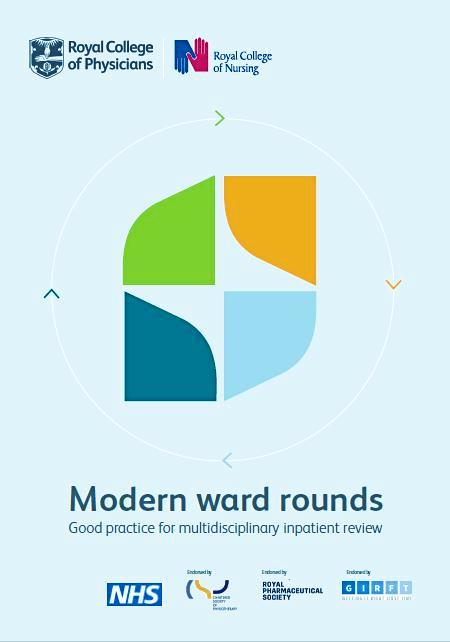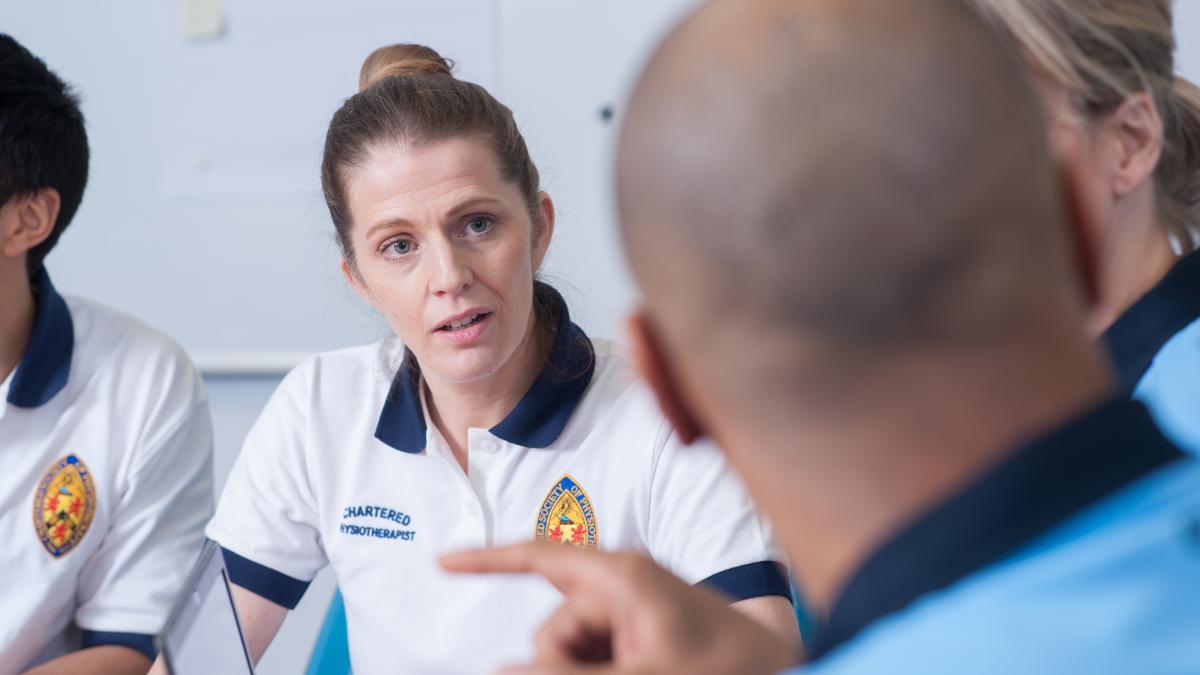The CSP has collaborated with the Royal College of Physicians (RCP) and other leading healthcare organisations to develop a new, multidisciplinary guide to good practice for modern ward rounds.

Modern ward rounds: Good practice for multidisciplinary inpatient review, was developed with the help of patients and co-produced with the Royal College of Nursing, the Royal Pharmaceutical Society and NHS England.

The RCP published review sets out best practice recommendations for modern ward rounds and describes how hospital care can be delivered in partnership with patients, families and carers - as well as outlining how best practise care can potentially improve outcomes.
Clinical teams will be able to use the guidance to self-assess against current best practice advice and identify priorities for improvement.
While organisational leaders can use it as template for implementing a standardised approach to multidisciplinary team inpatient assessment, which can be delivered through hospital-wide improvement programmes.
Commenting on the new guidance Helen Sharma, CSP head of practice improvement, said: 'This was an important opportunity to influence one of the RCP’s most popular documents and to highlight the importance of communication with the multidisciplinary team.
With the help of our members, we were able to demonstrate where physiotherapists have driven innovation in ward round practice, including providing leadership within this traditionally medical domain
The multidisciplinary guidance has also been endorsed by the Getting It Right First Time (GIRFT) national programme, which aims to improve medical care within the NHS by reducing unwarranted variations.
Ward rounds should have 150-minute limit

Among the recommendations in the report, the guidance advises that
- Ward rounds should not last more than 120–150 minutes, or have agreed breaks, to prevent cognitive fatigue.
- Anyone identified by a patient as being important to them, who is present at the time of a ward round, should also be included in the conversation and communication
- Patients should be left with a short note explaining the outcome of ward rounds, providing them with the most important information
- Information recorded during ward rounds should make clear the thinking around clinical decisions, and include clinical criteria for discharge
Feedback from physios

Guidance in the review was informed by a series of surveys, conducted by CSP and the other professional bodies involved, which sought feedback from physiotherapists, physicians, nurses and pharmacists during 2019.
2,022 physicians, 2,000 nurses, 509 pharmacists and 185 physiotherapists took part in the surveys, providing quantitative answers and free text comments about their current practice, challenges and good practice.
Out of the sample of physiotherapists who took part in the survey
- 42% reported that they regularly attended ward rounds
- 74% attended ward rounds once or twice a week
- While only 5% attended five days a week.
- 72% highlighted the importance of teaching and education on ward rounds
- 40% reported always receiving important information from ward rounds, while some commented on not being invited to participate.
- 30% said they attended some form of multidisciplinary team board round or huddle 3–5 times a week.
- Collectively, they cited the main barriers to multidisciplinary working on ward rounds as being: overall staffing levels, planning and a lack of mutual respect
Number of subscribers: 2



































